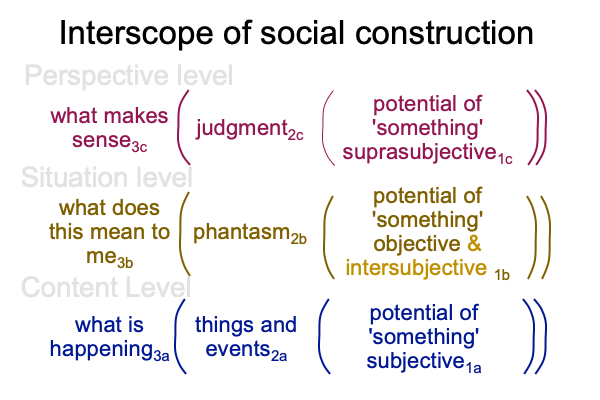0056 Kanzelberger lays out the moral theodrama.
The mystery of iniquity starts to unfold when I come up with ‘something’ objective1b, without attention to the rules of reason and the divine law1c. At first, the objective1b sets aside the suprasubjective1c, by not admitting to the intersubjective1b.
I decide what makes sense3c.
0057 Isn’t this the nature of concupiscence? Why should I worry about right reason or Yahweh’s law? I’m going to hang out with Cupid. Cupid likes me. Cupid agrees with me.
After a phantasm2b of deliciously-worded2a desire2b becomes habitual, self-justification3b strains towards the intersubjective1b. For self-deception1b to become openly regarded, it must first become intersubjective.
So, I, a self-deceiver3b, search out a team that will judge2c my privation2b as virtuous and true. Let my intersubjective2bhabit find an accommodating suprasubjectivity1c. Yes, I may join the club. I may join the secret society that does not pay attention to some aspect of the rule of reason or the divine law1c, then justifies the consequences2a.
In fact, our common intersubjective privation2b reflects a self-congratulating fullness of suprasubjective being2c. Our good is obvious to anyone who is “educated”. We all love one another and despise the uneducated morons, don’t we?
0058 We blather2a in production of our subjective agreement1a.
Are we really free to choose1b?
Or, am I forgetting something1c?
0059 There are privations in things and events2a, including speech-alone talk2a.
There are privations in phantasms2b, losing the balance between judgment2c and speech2a.
Here is a diagram for social construction.

What am I missing?
